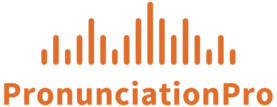Did you know that if you didn’t hear a language as an infant, you will not automatically hear certain sounds native speakers will hear? While it’s not impossible to learn to sound like a native, it’s difficult.
Fortunately, our brains are plastic and malleable. We can learn to hear and form foreign sounds.
Even as an adult you don’t have to sound like a foreigner forever.
It just takes some work and brain training. Below we’ll give you a few exercises to help you get started in improving your English pronunciation.
1. Mirror Visualization
Ironically we have these cells in our brains called mirror neurons. As you probably guessed, these neurons help us mimic what we see.
In fact, brain scans reveal that when you see an activity the same parts of your brain light up as the ones that do when you’re doing the activity. There is no difference mentally.
This is why mirror visualization is important to helping you pronunciate words correctly. Here’s what you do:
- Get a mirror – you should stand in front of it and speak a list of words. Watch your mouth move. Even better, have a native speaker help you by pronouncing words for you while you try to mimic.
- Touch your lips – adding one more sense to your learning will help. Your brain will better be able to measure what your mouth is doing if you put a finger to your lips and don’t move it while speaking.
2. Listen Carefully
All your senses can help you learn to make foreign sounds. Pick up some podcasts in English. Listen to songs. Watch movies.
Movies especially will help you both visualize and hear the sounds. Watch the lips of the actors if you can. Try and say the words you hear as they say them.
You can combine this exercise with the first one. Pause the film and try saying lines you hear in front of a mirror.
Do this several times a scene until you feel confident in the sounds you’re making.
3. Break the Words into Sounds
Language is codified sound and symbol. The words are just code representing the sounds your mouth makes when you speak.
Some languages don’t even have written form. To begin to codify these languages, linguists use a universal code to first break down the sounds of the language before they create a better code for the language.
You can essentially do this yourself. Look at how many syllables a word has.
If you don’t know, put your hand under your chin and say words slowly. Whenever you chin touches your hand, that’s a syllable. Another clue is that each syllable has one vowel sound (might have more than 1 vowel letter – but only one sound).
Example: creation /kree-A-shun/, syllable 1: long /ee/, syllable 2: long /A/, syllable 3: short /u/ (even though there’s an ‘i’ and ‘o’.)
Make sense?
Now break the word down by syllable. Pause after forming each part of the word and think about the sound you just made. Does it sound correct? Compare it to a recording.
The English Language is Complicated
There are hundreds of exercises non-native English speakers could use to learn English Pronunciation. It’s entirely possible to sound like a native.
Check out Pronunciation Pro to learn how and get started right now.
